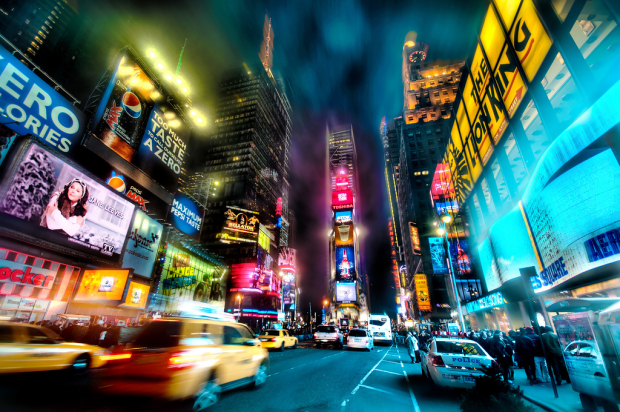Matt Trueman: Could context be as much a hindrance as a help?
Following a trip to New York, our critic Matt Trueman discovers that, when watching a show, context isn’t everything

(© Flickr: Dustin Spengler)
A quick run-down, then: Match/Play by the Texan experimentalists Rude Mechs was a faintly bewildering piece, a play built from dance, that seemed to be a study in ambiguity. Hand To God, heading West-End-wards in February, is a kooky, lightweight comedy about a possessed sock puppet. Futurity, an indie gig-musical about Ada Lovelace and a steam-powered supercomputer at Soho Rep was loveably ramshackle, while Fun Home (with its five Tonys) is a gorgeous delicate little thing that needs the right space – a Dorfman or bust sort of musical – about closeted homosexuality. Best of all: The Flick is the sort of intricate, intimate play only Annie Baker can write, musing on everything from self-consciousness to shit-phobia. When it hits the National in April, it’s a must.
Those shows that have thrown critics and audiences in the past are those that have busted context apart
British and American theatre are not a million miles from one another. There’s the shared language, of course, and the regular commercial crossovers. (Right now, King Charles III and A View From the Bridge are warming up, and there’s a fair bit of buzzy intrigue developing around both.) But the commonality is deeper than that: it’s in the tendency towards naturalism as a default norm, the emphasis on entertainment as much as art, the primacy of individual artists – playwrights, directors and actors in particular – over collective, collaborative practices. A trip to New York is not like stepping into an entirely new tradition. We’re talking Broadway, not Balinese mask theatre.
Even so, while it may not feel particularly alien, it’s certainly unfamiliar (to me, at least) in many ways. As my week wore on, I worked out what exactly I was missing: context.
Here’s a test for you:
a) What’s the difference between Broadway, Off-Broadway and Off-Off-Broadway?
Easy, right? OK. Try this for size:
b) What about Uptown theatre and Downtown theatre?
c) What sort of show suits the Barrow Street Theatre?
d) Name three actors associated with the Circle in the Square?
e) Who or what, exactly, is Hamilton?
On your home-turf, as a regular theatregoer at least, you can be fairly confident of context. You know the sort of thing each theatre does – new writing at the Royal Court, collaborative and community work at Battersea Arts Centre, all of that. You know the artists involved, the difference between a Rupert Goold show and a Katie Mitchell, for instance, or between Lucy Prebble and Lucy Kirkwood. You have a sense of theatre history, where a particular show is challenging the cultural norms and where it’s playing by the rules, what it’s growing out of and what it's pointing towards. You also know – and this is crucial – the world the work is sitting in, from the politics to the pop culture.
Context is integral to the way we watch theatre. It informs our watching, allowing us to watch a show in the way it is intended, to look out for certain things and to understand the way a piece makes its meaning. Those shows that have most thrown critics and audiences in the past are those that have busted context apart entirely, those with no antecedents or expectations – your Blasteds and Godots.
Providing context is a major part of the critic’s job – as is, it follows, an awareness of it. It’s on us to slot shows into the wider theatrical landscape and discuss work in terms of an artist’s overall output. However, I’m not so sure that context isn’t as much a hindrance as a help.
The Broadway opening of UK show King Charles III
Context affects judgement. One arrives at some theatres with a heavier heart than others, certainly with different expectations. Context makes it easier to five-star some shows than others – have a look at the Young Chekhov reviews coming out today, which, whether deserved or not (I’ve not seen it), were pretty predictable. Smaller, scrappier shows are regarded with more scepticism, while emerging artists have to prove themselves in a way that their established elders don’t.
I’m saying this: it can be difficult to see a show for what it really is. That is the critic’s job – but it’s easy to slip out of focus. For all that it was slightly disarming – and that’s the right word for it – to see theatre without a sense of the context, it did force me to come to shows completely afresh, without any expectations or prejudice. That was wonderfully refreshing: a chance to see the work for what it really is. Context is important, but it’s not everything.












